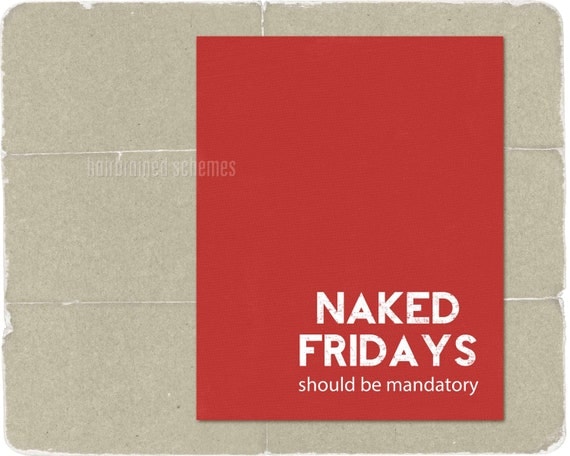It is an accepted truism for NCUA board members presenting their credentials for Senate confirmation, or whenever the agency is justifying a new rule, reg or policy, to state their ultimate goal is “to protect the insurance fund.”
Current board members have even called that objective their goal or North Star. Their primary job.
This assertion turns upside down the logic of means and ends.
What is NCUA’s End Purpose?
NCUA’s primary responsibility, its purpose, is encouraging and sustaining the resilience and integrity of a cooperative financial system for American consumers. The FCU Act states:
The term Federal credit union means a cooperative association organized in accordance with the provisions of this chapter for the purpose of promoting thrift among its members and creating a source of credit for provident and productive purposes
To achieve this end, NCUA was given multiple means in the law: chartering, examinations, supervision, administration of charter changes, issuing regulations and providing expert guidance. The tool least used, as it is rarely needed, is calling upon NCUSIF.
Most importantly, the FCU act specifically states the NCUSIF’s financial solvency is protected by the full faith and credit of the credit union system. All members must deposit and maintain 1 cent of each share dollar in a credit union with the NCUSIF. Every member is part of this collective guarantee ensuring all other member shares are indeed safe. This is a cooperative movement commitment, unique to the NCUSIF. It is the law.
If all of NCUA’s every day tools ( the other “means”) are effectively managed, then the members should never be called upon to provide additional resources. That is how NCUA protects the Fund.
The first four-decades of regulatory responsibility to maintain cooperative system integrity from 1934-1971 did not require the share insurance tool.
One aspect of “integrity” was certainly promoting credit union solvency as there has always been reserving and net worth requirements in the law.
But just as important, system “integrity” (as a source of credit) also included vital cooperative components to provide a distinct financial alternative for members. These include democratic governance, values such as education and collaboration, volunteer leadership (unpaid directors and committee members), access for all Americans regardless of financial circumstance (capital), focus on community (common bond), and contrary to the capitalist model, building common wealth versus private equity, to be used by future generations .
Over time additional characteristics have been developed including interdependence (corporates and CUSO’s) and system support augmenting the critical initial role of sponsors.
A Reward for Performance
When Congress approved the NCUSIF for credit unions in 1971, it was a reward for their performance. As stated at that time, insurance was not due to financial problems with credit unions or the cooperative system. Rather it recognized their growing contribution to the American economy and that they might not perceived by the public as the equal of their FSLIC/FDIC alternatives.
A Cooperative Policy Framework Is Lacking
For NCUA to faithfully fulfill its mission to protect the integrity of this cooperative financial alternative, an appropriate regulatory policy framework is necessary. Such a framework should be nonpartisan and multi-administration. Past examples are the deregulation of shares by NCUA or the redesign of the NCUSIF.
Without a thoughtful and evolving framework, NCUA becomes a mishmash of regulatory justifications or each Chairman’s personal priorities. What do the banking regulators do? Or let the “free market” work its will. Or elevating suboptimal tasks and agency operations to define priorities.
Absent a policy framework, the unique role of cooperatives becomes increasingly confused with all the other financial activity in the marketplace. No longer are the well-being and rights of member-owners front and center. Bright shiny objects such as innovation and new technologies take center stage.
The ambitions of managers and boards seeking to outgrow their for-profit competitors become the industry’s defining priority. Some credit union leaders chart success not by developing a better alternative to attract members, but rather using their decades of member reserves for buying out bank owners at a premium.
That activity would certainly seem contrary to the spirit of the Act. And therefore worthy of public debate.
Credit union CEO’s, nearing retirement, game the system for personal enrichment “selling their credit union” via merger. They capitalize on the transfer of members’ accumulated wealth and loyalty for additional bonuses and extended payments beyond those merited as CEO.
In these transactions, the financial and relationship legacy, its goodwill, is turned over to boards and CEO’s with no prior connection. And justified only with vague future promises that bigger is better. The unique character of the charter and its local legacy and traditional focus are eliminated.
Tomorrow Part II, developing a policy framework.
















Chip,
I’ve been waiting for people smarter than me to comment… I know they’re out there!
My observation is that if you do the Seven Cooperative Principles right, DEI feels like it’s already built in. Raising DEI as an Eighth Principle seems like we need a collective kick in the butt for not getting the first seven properly implemented!
Far from dismissing the idea, I see this as a challenge we need to take on. If anyone, either within the movement, or on the outside, isn’t feeling it, then it MUST be raised up – but not as a revolutionary new principle for us to debate, but as an EVOLUTIONARY opportunity to fix what’s already in place.
Too many people are feeling disenfranchised these days, and the view from my soapbox is that credit unions specifically, and cooperatives generally, are the best way to restore power back in the hands of the people.
By all means, credit unions should raise the DEI issue – not as a “checklist” item – “here’s our position in response to this issue” – but as a challenge to their own leadership, their staff, their members, and their communities, to GET INVOLVED.
Our grounding principles are solid. If we erred in the how we built on them, we need that diversity and inclusivity to drive our evolution.
P.S. I recommend the writings of Ray Dalio (don’t settle for watching him on the financial channels; really dig in to his 3 “Principles” books). I’m also a fan of Israeli historian Yuval Harari (3 books), as well as French economist Thomas Piketty for his work on participative socialism, and Thomas Hobbes for his ideas on the social contract… he was too late to save the heads Charles I, or Cromwell, but Charles II learned a few things.
We seem to have lost that social contract, and have allowed a much larger Leviathan to form.
Leo, may I recommend a book to you – “Jesus and the Disinherited” by Howard Thurman. It’s a short read and don’t be put off by the title if you’re not religious. If you’re black you should read it, if you’re white you must.
But, it is far more than just another sermon about race relations in the U.S. It is about the often dehumanizing psychology underlying any relationship between those with power and those without – an “unbalanced” equation which, in the economic world, credit unions were created to address.
So many of our cooperative leaders seem to have loss sight of that original thought, that original principle. A financial cooperative with a social purpose is not a bank, nor should it be. Without a social purpose….?
“Life is not the way it should be, it is the way it is”… with our task growing larger daily, perhaps we shouldn’t rest on our laurels – nor our principles.
Hope you will take a look at what Howard Thurman has to say about all of us, including you and me…and credit unions.